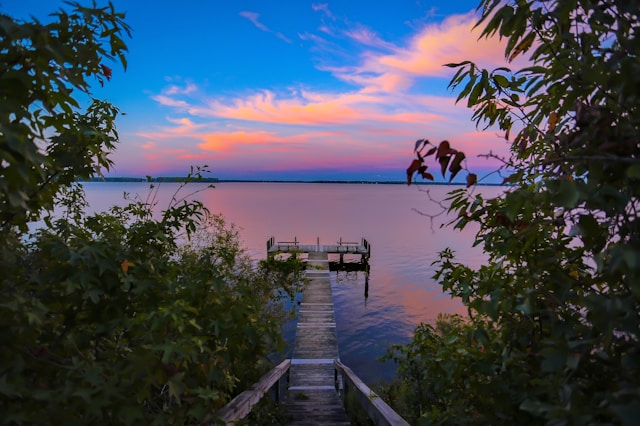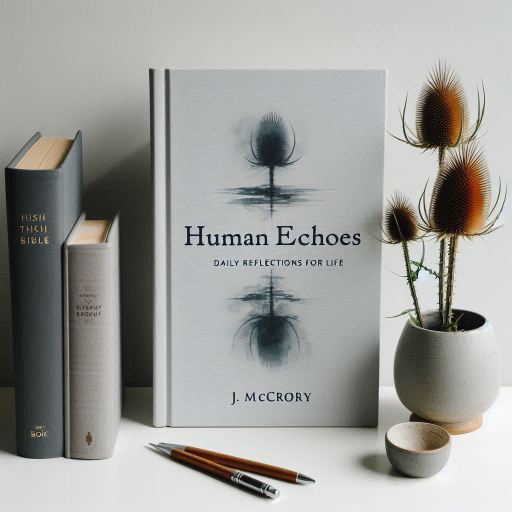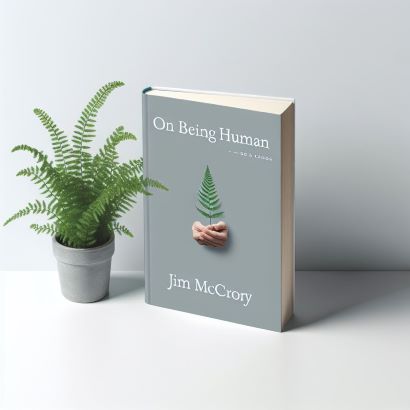And each man will sit under his own vine and under his own fig tree,
with no one to frighten him. For the mouth of the LORD of Hosts has spoken.
- Micah 4:4

Image courtesy of https://unsplash.com/@todddesantis
I asked my wife recently what her happiest childhood memory was. Without hesitation, she said, "Playing in my grandparents’ garden back in our little village in the Philippines." I saw that memory come alive again just this weekend. As she bent down among the flowerbeds, bedding new plants with quiet joy, her face glowed with the same peace I imagined she felt as a child. There was something sacred about it.
It brought me back to a thought I explored in a previous blog—the idea of redesigning life on earth. Despite the fractures of this world, despite its often hopeless state, there are still oases of healing. Why is it that we experience deep psychological and physical restoration when exposed to nature? Science points to hormones, neural pathways, circadian rhythms. But I think it’s simpler than that: we were made for a garden.
This was God’s original plan—for us to cultivate the earth, to walk with Him in a place of harmony. But something broke. The emergence of selfishness and evil shattered that sacred space. And yet, deep within, the longing remains.
It’s no coincidence that we are drawn to beauty, to peace, to the natural world. Who hasn’t at some point prayed the Lord’s Prayer and glossed over the words, “Thy Kingdom come, Thy will be done on earth as it is in heaven”? Or heard Jesus' words to the criminal on the cross: “You will be with me in Paradise.” These are not vague hopes. They’re promises—a return to the garden.
And maybe that’s what our longing really is: an ache for Paradise.
I’ve felt this longing since I was a boy. I remember the moment it took hold. My music teacher had introduced us to the haunting, soul-deep compositions of Edvard Grieg. As the first notes of Morning played, I was no longer in the classroom. I was somewhere else—somewhere vast and wild, where mist clung to mountains and fjords cut deep into the earth like ancient wounds of beauty. I was ten years old, but I felt something I couldn't name: a kind of homesickness for a country I had never seen.
Later I would learn the German word Fernweh—a deep longing for a faraway place, especially one you’ve never been. That word has stayed with me because it captures something I’ve never quite shaken. Even now, when I hear Grieg’s Peer Gynt Suite, something stirs. I feel the tug of mountains I’ve never climbed, forests I’ve never wandered, and air I’ve never breathed but somehow know in my bones. It’s as though that music opened a door in me, revealing a home I’ve yet to find.
Strangely, this ache is not unique. It’s deeply personal, yes—but universally human. We are creatures of longing.
I often wonder—if I moved to Scandinavia, would I still feel the same ache? Or would I miss the rugged coastline of Scotland, the wild Atlantic winds, the place I’ve called home for decades?
Perhaps the truth is that we belong to that redesigned society we pondered on in the previous blog. Maybe Fernweh is a reminder that we have roots scattered across the earth, planted by stories, by melodies, by memories passed down or inherited in ways we can’t explain. My own surname is Celtic, with threads tied to the old Norse. Who’s to say that somewhere deep in the psyche, those ancestral echoes aren’t still at work?
And maybe that’s where the spiritual meets the personal. Could it be that this longing—whether for gardens or fjords, tropics or tundra—isn’t about geography at all? Maybe it’s a longing for the world as it was meant to be. Maybe it’s the soul’s way of remembering Eden.
My friends and I often discuss God’s future plans. Will the faithful go to heaven or remain on earth? Could Paradise be somewhere not yet revealed? I don’t claim to know. But one thing I do believe: in that place, wherever it is, we won’t feel homesick.
Because home, in its truest sense, isn’t just a place. It’s the fulfilment of every yearning we’ve ever had. It’s the sound of Grieg’s mountains, the scent of a grandmother’s garden, the quiet joy of planting something beautiful in the soil. It’s the world made whole again.


